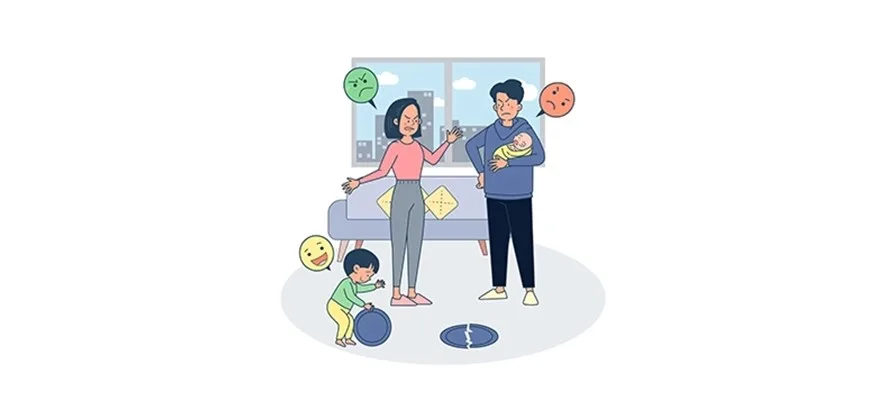Parenting is often described as one of the most rewarding experiences in life, but it also brings challenges that can sometimes feel overwhelming. Stress and anxiety are common among parents, whether due to financial pressures, work-life balance struggles, or worries about children’s future and safety. While these feelings are understandable, research shows that parental stress and anxiety can have a significant impact on children’s emotional and behavioral well-being.
Children are remarkably sensitive to the emotional climate at home. They may not fully understand the reasons behind parental stress, but they pick up on cues through tone of voice, facial expressions, and changes in daily interactions. Studies have consistently shown that when parents experience high levels of stress or anxiety, children are more likely to develop emotional difficulties such as anxiety, sadness, or irritability, as well as behavioral issues like defiance, aggression, or trouble focusing in school. For instance, research has found that fathers experiencing greater stress often have children displaying hyperactivity or attention problems, while mothers under stress may report that their children face more emotional or peer-related struggles.
The effects become even more pronounced when stress is a constant presence in the household. Even when not directed at the child, ongoing tension in the family environment can affect a child’s sense of safety and stability. Studies on young children have found that parental anxiety often serves as a link between household stress and children’s emotional and behavioral challenges. In some cases, elevated stress hormones have been observed in children living in high-stress environments, suggesting that parental emotions can influence not just psychological but also biological responses in children.
Another important nuance is the bidirectional relationship between parental and child anxiety. Research has found that parents who experience anxiety are more likely to have children who develop anxiety over time. At the same time, when children struggle emotionally, parents may feel more overwhelmed, guilty, or anxious themselves. This creates a cycle where stress and emotional difficulties reinforce one another across generations.
Parenting behaviors also matter greatly. When parents feel emotionally drained or anxious, they may become less patient or emotionally available, sometimes responding with criticism or withdrawal rather than warmth and support. Children in such environments may feel unsure about how to handle their emotions, which can lead to long-term difficulties in regulating feelings and managing relationships. On the other hand, parents who are able to manage their own stress and model healthy coping strategies often raise children who are more resilient and better able to handle life’s challenges.
The broader family context, including financial struggles, marital conflicts, or major life transitions, also plays a role in shaping children’s experiences. According to the family stress model, these external pressures can disrupt parenting behaviors and emotional availability, affecting children’s mental health. However, some studies suggest that moderate levels of stress, when paired with healthy coping strategies, may actually help children develop empathy and problem-solving skills as they witness their parents managing challenges constructively.
It is also important to note that child behavior can influence parental well-being as much as the other way around. Children who exhibit emotional or behavioral problems may increase parental stress, which in turn can worsen parenting practices, creating a cycle that can be difficult to break without support.
Breaking this cycle often begins with helping parents recognize and address their own emotional needs. Research points to the benefits of programs that teach stress management, emotional regulation, and positive parenting techniques. Parents who learn these skills tend to create more supportive, structured, and nurturing environments, which reduce emotional and behavioral difficulties in children.
Ultimately, parental stress and anxiety are not signs of failure but reminders of the interconnected emotional worlds of families. By acknowledging and addressing these challenges, parents can foster healthier relationships and emotional resilience in their children. Supporting parents in managing their own well-being not only benefits them but also lays the foundation for children to grow into emotionally secure and well-adjusted individuals.

